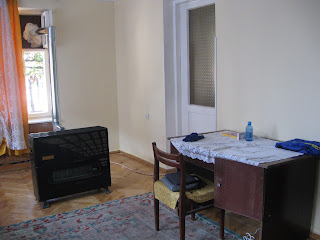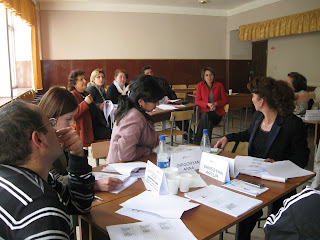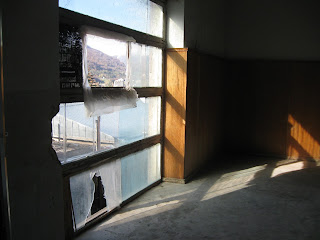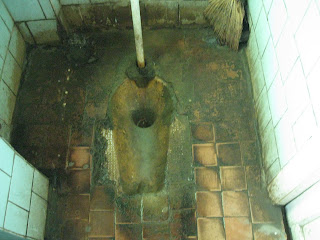I never liked roller coaster rides –the ups and downs made me dizzy and sick. As an adult that childish activity was even less appealing to me when the side effects of having “fun” were more pronounced. So, I was the child and the parent who held the coats and cotton candy and watched as others relished the thrills of heights and ups and downs. David can attest to spending many hours of previous vacations riding roller coasters with our children and later, our grandson. Thanks, David!
Now, I feel as if those roller coaster rides are back. Let me explain……………..
 |
| Swear-in Ceremony, August 16, 2011 with host family and friends and fellow Peace Corps volunteers from Kotayk, Armenia a HIGH day for sure! |
As a Peace Corps volunteer we’ve been told there are natural ups and downs within the 27 months of training and service. There is a high when finally reaching our country of service. There is a high and feeling of excitement with travel, meeting other new Peace Corps trainees and beginning pre-service training with them. There is an extreme high as one anticipates meeting their new host family yet an extreme low may follow if this match is not a good one. The “honeymoon period” follows, then intense language training becomes all- encompassing for the new Peace Corps volunteer. What follows may be climate adjustments, personal relationship difficulties, a compromise in living conditions, health issues and continued struggles with a new and sometimes difficult foreign language. Those potential lows are off- set by highs of meeting gracious, welcoming host country nationals, traveling to see sites in the country, making new friends within the volunteer group and Peace Corps staff, and generally settling into Peace Corps life as one has dreamed about for varying lengths of time. Once training is over, the high of swearing in and becoming an official Peace Corps volunteer is followed by periods of lows and highs related to each individual volunteer’s personality and situation. And, predictably this roller coaster ride will continue throughout service no matter what country Peace Corps service is found.
 |
| Thanksgiving Dinner, 2011, with Armenian friends: a HIGH on the roller coaster ride in Armenia |
I am now immersed in a new town with David. We’ve made Armenian friends who shared Thanksgiving dinner with us. Every day we go to places where meaningful work may potentially be done although this is not certain. We are fortunate to have a nice, warm apartment to return to each evening. We also have each other to lean on when the going gets rough. These are some of the highs for our first 3 months in Armenia.
But, I personally am back on a roller coaster with classic ups and downs. One day I’m ready to quit because it was a low, “bad day”. Then, a random child smiles and says “hello” to me on the sidewalk or a neighbor calls from her balcony hidden by grape vines and says, “barev dzez, vons es?” and I can actually respond to her in Hayeren! Then a kind lady at the avtobus stop initiates a conversation and seems to enjoy a brief chat with me, the Amerikatsi.”How old are you?” she asks, in the typical manner of a curious Armenian. “Vetsun oot”, I reply. She just smiles and looks at me and asks “Are you from California?” Armenians always ask that question when talking with an American. I smile back and say, “no, North Carolinaitis (from NC)”. She looks puzzled. She has no idea where North Carolina is and the avtobus is pulling up to the curb. End of conversation. So goes a small high on the roller coaster ride of this volunteer.
Lows occur when I’m at my school still trying to figure out my niche. Students now speak and say “hello” more spontaneously. They sometimes stop by our English room to say hello. I want to chat with the students and the teachers at my school, yet neither they nor I are fluent in each other’s language. Fortunately, smiles, laughter and body language are universal communication tools. The lows occur in my life when out of frustration I feel totally at a loss for words or those universal tools fail. My mute button is then pushed! If you know me at all, you will understand that I do NOT like being mute!
Highs raise my spirits when my counterpart teacher likes an idea and it is successfully used with our students. The low dip of the roller coaster is felt when she and I sit in our winter coats in a cold, stark, unheated classroom with a small group of students who struggle to read a text in English. We are both correcting word pronunciations as they stumble over difficult words. I am not needed on this day, and it hurts. I want off the roller coaster—but—I missed several days of school due to in-service training with Peace Corps. When I returned the students seemed genuinely glad to see me. Their greetings kept me warm, and high, that first day back. Lows occur again when it is cold and gray outside with snow predicted as temperatures drop. Highs return when a brisk walk takes David and me through a wonderland of evergreen trees, each dusted with new, soft snow as lovely as any Christmas card.
Emotions level out periodically just as on the amusement park roller coaster. One’s sense of anticipation builds especially if eyes are covered to prevent seeing what is next on the roller coaster track. A steep drop into the depths of the ride happens when a question is asked and an understandable answer does not follow, or I see a student with potential for learning who is ignored or dismissed as if he weren’t present in the classroom. This unfortunately occurs on a regular basis in Armenian classrooms. The roller coaster rises from that low and gradually carries me onto the plateau when at the end of the day, a teacher asks me to walk home with her. We are not able to verbally communicate very well, although we try, but arm-in-arm in the true Armenian way, we start up the steep hill together headed toward our homes. She is riding the high rail of the roller coaster with me and doesn’t even know it.
 |
| Gas heater with pipe venting to outside---main source of heat in our apartment and we are lucky to have it!!! |
When I enter our apartment, it is cold inside. (We turn off our heat before leaving for work each morning for safety.) Still riding the high of a friendly walk home, I brace myself for turning on the gas heater which provides the majority of heat for our apt. I have not done this before because I am afraid of the gas and what it might do if too high, or leaks or doesn’t ignite. I’m also afraid of extinguishing the pilot light which would be a low in David’s day when he arrives home and has to struggle to re-light it. But, I swiftly turn the designated knob to the far left as David has shown me previously. A swish of gas is heard, and soon flames appear, yellow and blue, dancing in the window of the heater. I adjust the flames and relax as heat begins to flow into the cold room. I am riding a new high brought on by the success of accomplishing merely this simple task. The smallest of triumphs, sometimes that’s all it takes!
 |
| Site seeing tour with Dave and Judy.Statues portray actors in movie about Dilijan, "Mimino".This was a day filled with HIGH's. They balance the LOW's. |






















